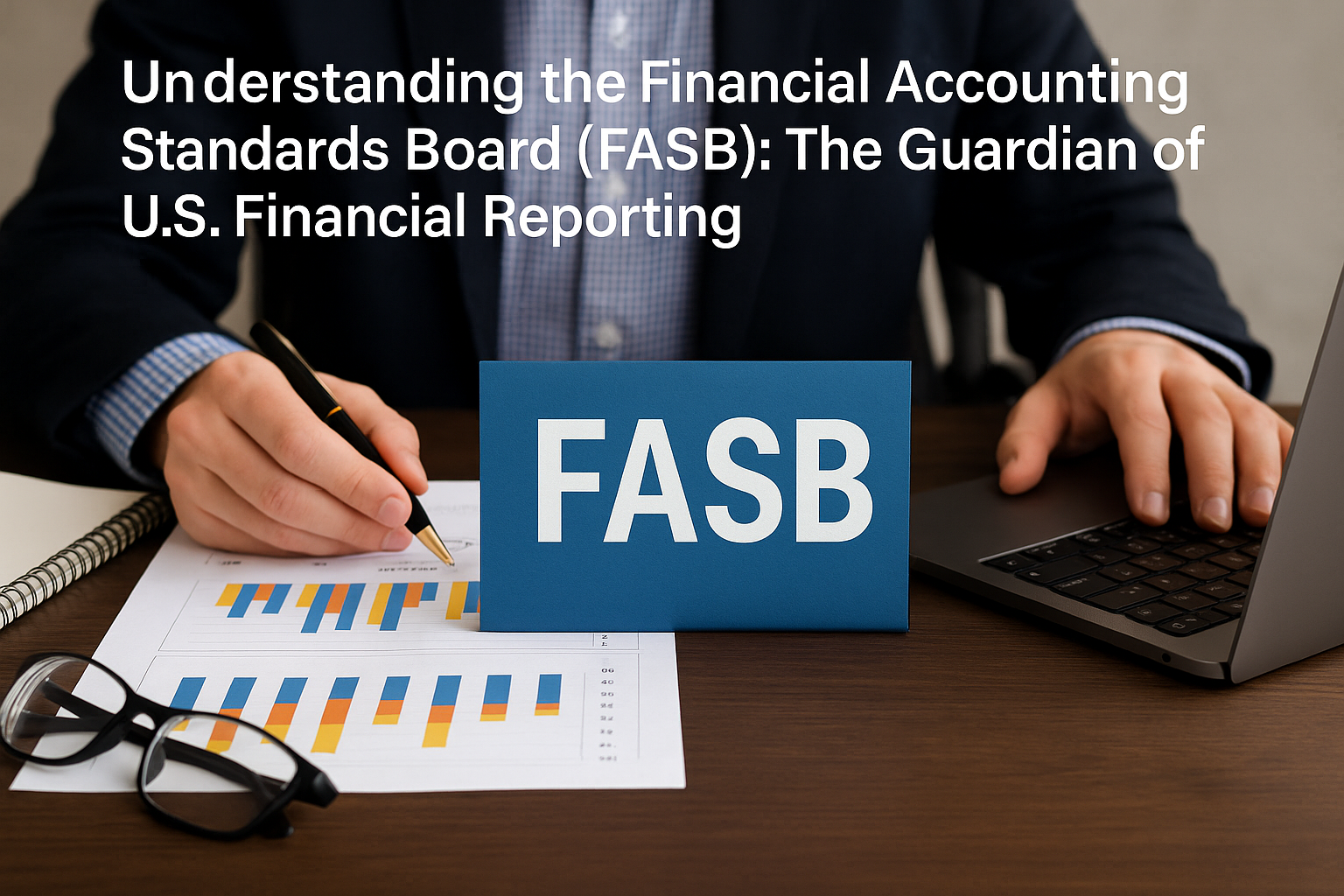
In the complex world of finance and accounting, consistency and transparency are paramount. Investors, creditors, and stakeholders need reliable information to make informed decisions. This is where the Financial Accounting Standards Board (FASB) plays a crucial role. As the primary organization responsible for establishing accounting standards in the United States, FASB ensures that financial reporting remains consistent, comparable, and trustworthy across all industries.
The Financial Accounting Standards Board is an independent, private-sector organization that establishes financial accounting and reporting standards for public and private companies, as well as nonprofit organizations in the United States. Founded in 1973, FASB operates under the oversight of the Financial Accounting Foundation (FAF) and is recognized by the Securities and Exchange Commission (SEC) as the designated accounting standard setter for public companies.
The mission of FASB is to establish and improve standards of financial accounting and reporting that provide useful information to investors and other users of financial reports. These standards, known as Generally Accepted Accounting Principles (GAAP), serve as the framework for how companies prepare and present their financial statements.
Before the Financial Accounting Standards Board was established, accounting standards were set by the Accounting Principles Board (APB), which faced criticism for being too closely tied to the accounting profession and lacking independence. The need for a more independent and robust standard-setting body led to the creation of FASB in 1973.
Since its inception, the Financial Accounting Standards Board has issued hundreds of accounting standards through various means, including Statements of Financial Accounting Standards (SFAS), FASB Interpretations, and more recently, Accounting Standards Updates (ASUs). In 2009, FASB launched the Accounting Standards Codification, which reorganized thousands of GAAP pronouncements into a single, comprehensive system organized by topic.
The Financial Accounting Standards Board consists of seven full-time members who have extensive knowledge of accounting, finance, and business. These board members are appointed by the FAF Board of Trustees and serve five-year terms. To maintain independence, FASB members must sever all ties with their previous employers and are prohibited from holding positions in companies or firms during their tenure.
FASB follows a thorough due process when developing new standards or modifying existing ones. This process includes:
This transparent process ensures that the Financial Accounting Standards Board considers diverse perspectives before finalizing any accounting standard.
The work of the Financial Accounting Standards Board impacts virtually every organization in the United States. Here's why FASB is so critical:
FASB standards create a common language for financial reporting. When all companies follow the same accounting principles, investors and analysts can compare financial statements across different organizations and industries. This consistency is essential for making informed investment decisions and allocating capital efficiently.
By establishing rigorous accounting standards, the Financial Accounting Standards Board helps protect investors from misleading or incomplete financial information. Clear standards reduce the risk of accounting fraud and ensure that companies provide transparent disclosures about their financial position and performance.
The business world constantly evolves with new technologies, financial instruments, and business models. FASB continuously updates accounting standards to address emerging issues and ensure that financial reporting remains relevant. Recent examples include standards on revenue recognition, lease accounting, and cryptocurrency accounting.
Reliable financial reporting, facilitated by FASB standards, supports economic growth by fostering confidence in capital markets. When investors trust the financial information they receive, they are more willing to invest, which provides businesses with the capital they need to grow and innovate.
Over the years, the Financial Accounting Standards Board has issued numerous influential standards that have shaped financial reporting practices:
One of the most significant recent standards, ASC 606 (formerly ASU 2014-09), fundamentally changed how companies recognize revenue. This standard provides a comprehensive framework for revenue recognition and applies to nearly all industries, improving consistency and comparability.
This FASB standard requires companies to recognize most leases on their balance sheets, significantly impacting how organizations report their lease obligations. The standard increased transparency by bringing previously off-balance-sheet leases into financial statements.
The Current Expected Credit Loss (CECL) model changed how financial institutions account for credit losses, requiring them to recognize expected losses earlier based on forward-looking information rather than waiting for losses to occur.
While the Financial Accounting Standards Board sets standards for the United States, the International Accounting Standards Board (IASB) establishes International Financial Reporting Standards (IFRS) used in many other countries. FASB and IASB have worked together on convergence projects to reduce differences between U.S. GAAP and IFRS, though significant differences still remain.
The relationship between FASB and international standard setters remains important as business becomes increasingly global. Many multinational companies must navigate both GAAP and IFRS requirements, making coordination between standard-setting bodies valuable.
The Financial Accounting Standards Board faces several ongoing challenges:
As business transactions become more complex, accounting standards must evolve to address them. However, increasingly complex standards can be difficult for smaller companies to implement. FASB must balance the need for comprehensive guidance with practical application concerns.
Technology and innovation create new accounting challenges faster than standards can be developed. Issues like cryptocurrency, artificial intelligence, and new business models require FASB to be nimble and responsive.
Different stakeholders from investors to preparers to auditors often have conflicting views on what accounting standards should accomplish. The Financial Accounting Standards Board must navigate these competing interests while maintaining its focus on providing useful information to investors.
As we look ahead, the Financial Accounting Standards Board will continue to play a vital role in shaping financial reporting. Emerging technologies, environmental and social reporting demands, and evolving business models will require FASB to adapt and innovate.
The increasing focus on environmental, social, and governance (ESG) reporting may expand FASB's role, though currently, this area is primarily addressed by other organizations. The digitization of financial reporting and the potential for real-time information disclosure may also influence how the Financial Accounting Standards Board approaches standard-setting in the future.
The Financial Accounting Standards Board stands as a cornerstone of the U.S. financial reporting system. Through its independent, thorough approach to standard-setting, FASB ensures that financial statements provide reliable, comparable information that serves the needs of investors and other stakeholders. As business and technology continue to evolve, the Financial Accounting Standards Board will remain essential in maintaining trust and transparency in financial markets. Understanding FASB and its standards is crucial for anyone involved in preparing, auditing, or using financial statements in the United States.
.png)



